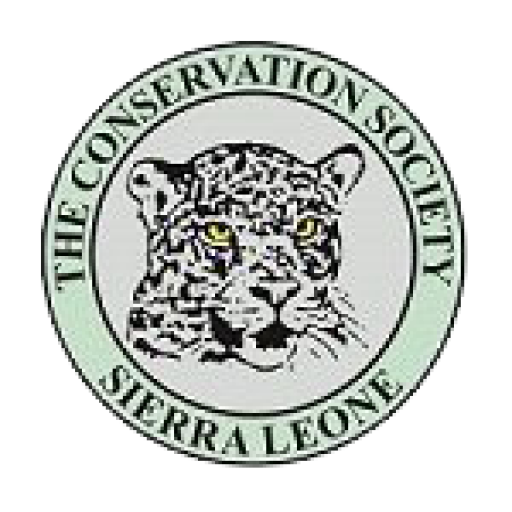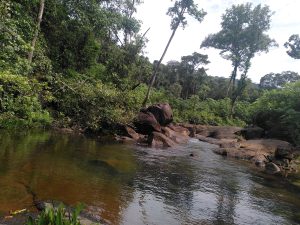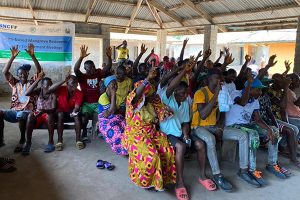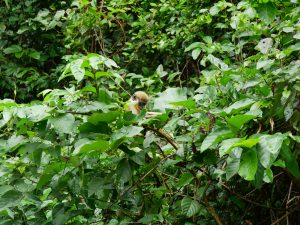Background and short history
As Sierra Leone braces itself to kick-start oil exploitation and production activities anytime in the near future in identified areas in the country, expectations of high socio-economic boom are rife in all walks of life, particularly across the political spectrum. These activities however, do not go without grave attendant environmental consequences. The marine coastal environment and communities nearby, stand to be adversely affected by such activities.
With support from MAVA Foundation through the Regional Partnership for Conservation of the Coastal and Marine Zone in Africa (PRCM), the Conservation Society of Sierra Leone (CSSL), in collaboration with the Environment Protection Agency – Sierra Leone (EPA-SL), Sierra Leone Maritime Administration (SLMA) and the Institute of Marine Biology and Oceanography (IMBO) in the University of Sierra Leone have been working collaboratively over the years in rolling out activities to mitigate the negative impacts of imminent oil pollution on the marine coastal environment and nearby communities.
Current situation
There is currently ongoing work that will eventually lead to the exploitation of oil in Sierra Leone. Experiences from oil producing countries have indicated that insufficient knowledge about oil spill management before exploitation and production will result in untold consequences on the marine environment and the lives of citizens, especially those around coastal communities.
Our goals
By 2022 at least five Civil Society Organizations (CSOs) per country have benefited from training activities on environmental monitoring, advocacy, citizen mobilization and social mediation.
Our approach
CSSL’s approach is advocacy and social mobilization to increase knowledge among key actors and coastal communities to reduce the impacts of oil pollution on marine environment.
Our activities
- Outreach media engagements: community engagements, radio and TV programs, production and distribution of IEC materials during public engagements, etc.
- Conduct policy review forums with key actors.
- Conduct site visits to oil spill prone locations.
Expected outcomes
- Increased environmental monitoring, advocacy, citizen mobilization and social mediation.
- Increased government commitment to reduce hazards of oil and gas pollution on marine environment through implementation of existing legal frameworks.
- Increased public awareness on the hazards and management of oil pollution on the environment generally.
What the communities think about it…
The formation of a national platform: Coalition on Oil and Gas Pollution on the Environment (COGaPE) has been viewed by coastal communities and key actors in the sector as a step in the right direction. They see the coalition as their mouthpiece to advocate on their behalf to bring sanity and much needed security to the oil and gas sector in the country.
“Our membership in COGaPE is one that will promote the interests of fishermen and the fishing industry in Sierra Leone…”, Mohamed Wudie Koroma, Sierra Leone Artisanal Fishermen’s Consortium
News about our work on Oil and Gas Pollution:
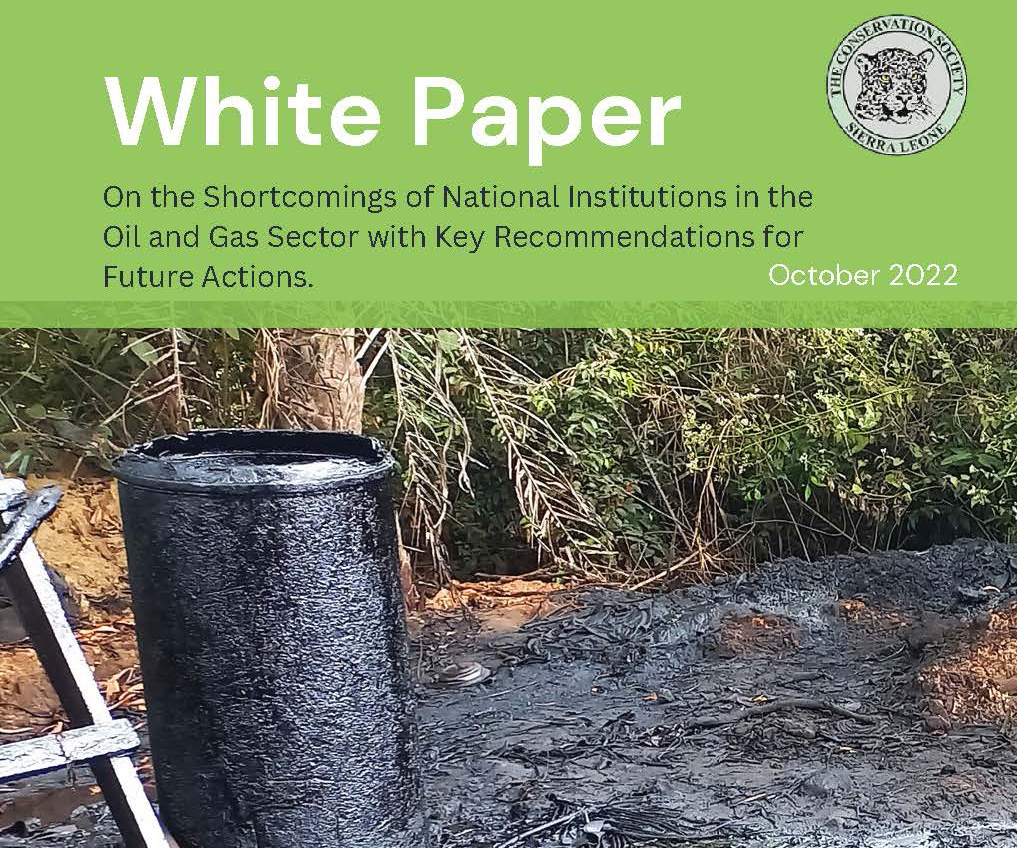
White Paper on Oil and Gas
White Paper on the Shortcomings of National Institutions in the Oil and Gas Sector in Sierra Leone with Key Recommendations for Future Actions. The Conservation
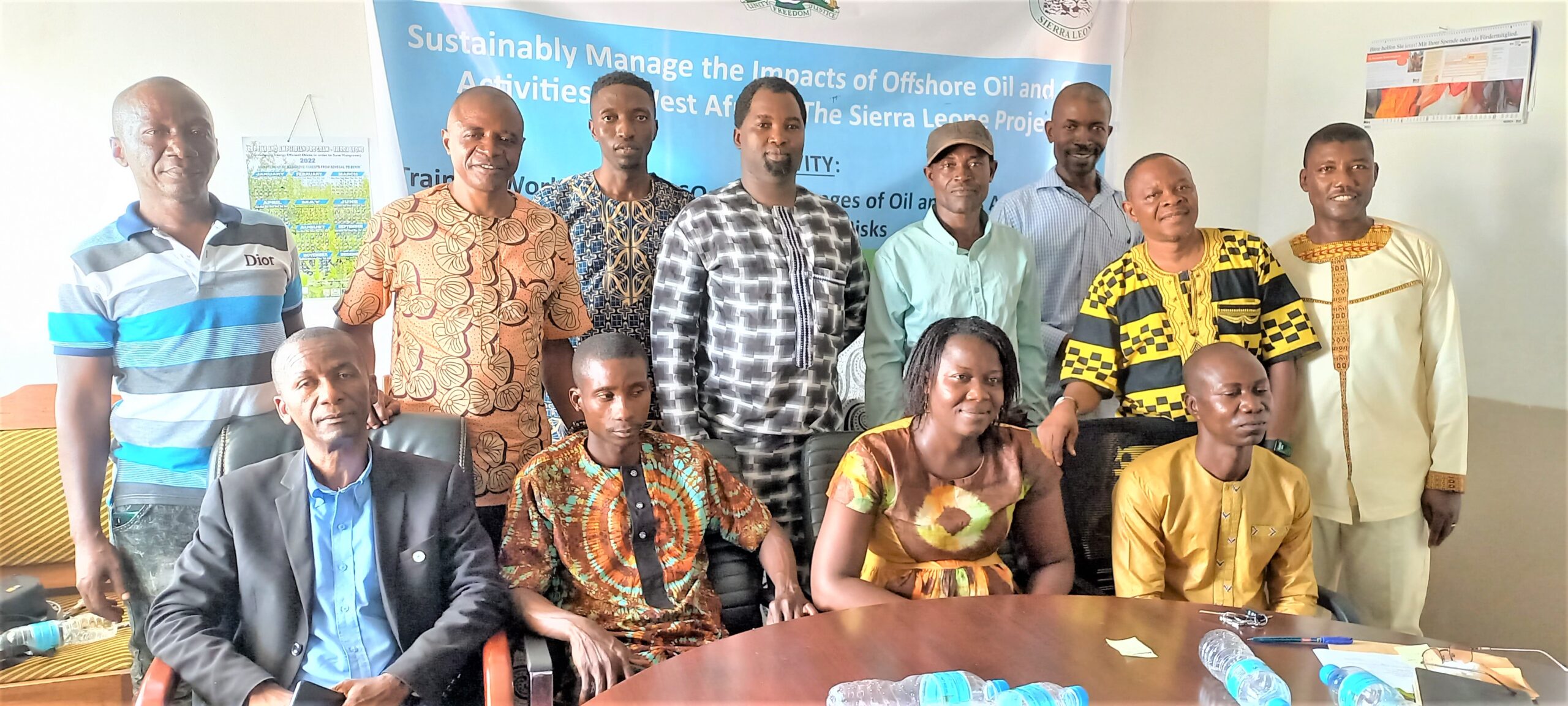
Environmental CSOs Receive Training on Tackling Challenges of Oil and Gas and Environmental Risks
With support from MAVA Foundation through PRCM, CSSL concluded a one-day training for environmental CSOs and media practitioners on the challenges of oil and gas
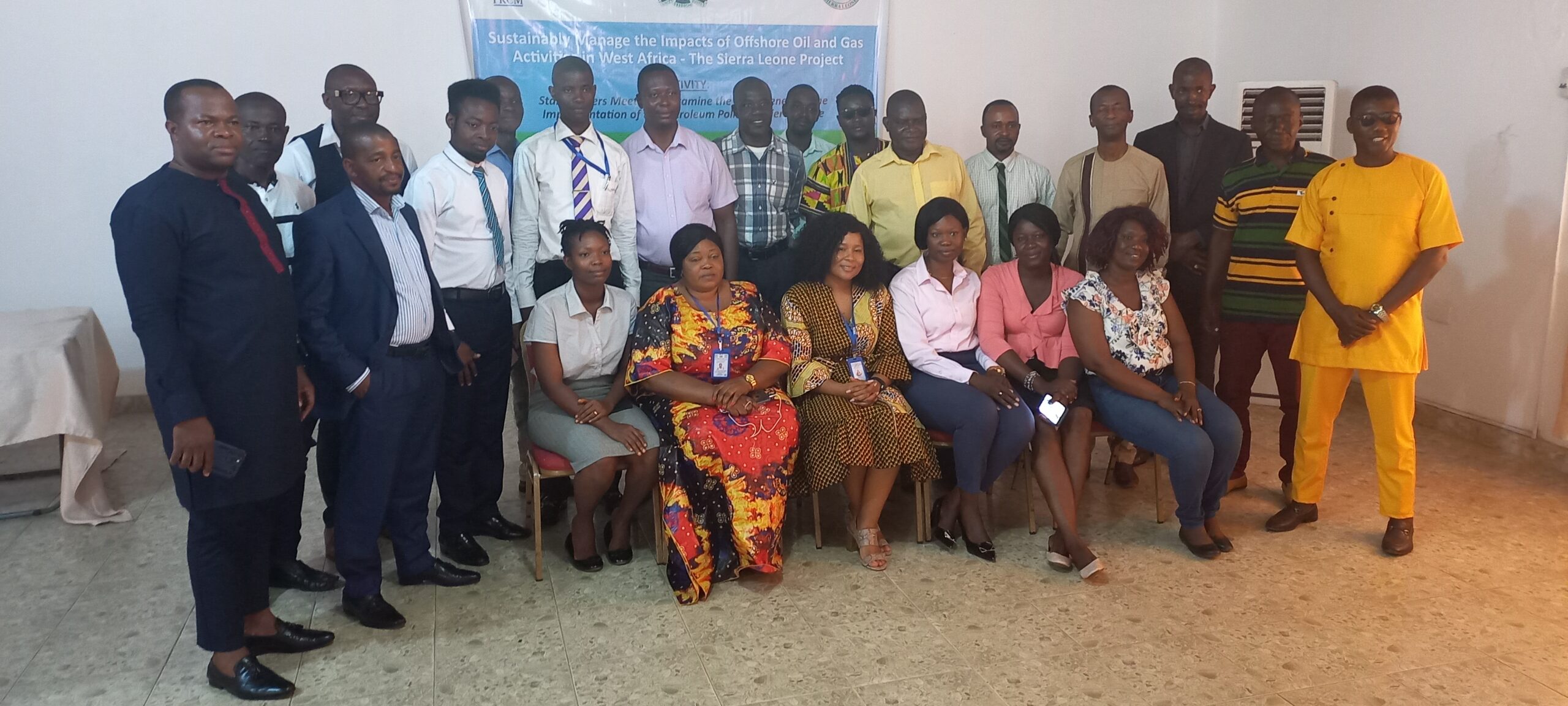
Actors in the Oil and Gas Sector Examine the Effectiveness of the Petroleum Policy Implementation in Freetown
The Conservation Society of Sierra Leone (CSSL) held a day long engagement with key actors in the oil and gas sector in Sierra Leone at
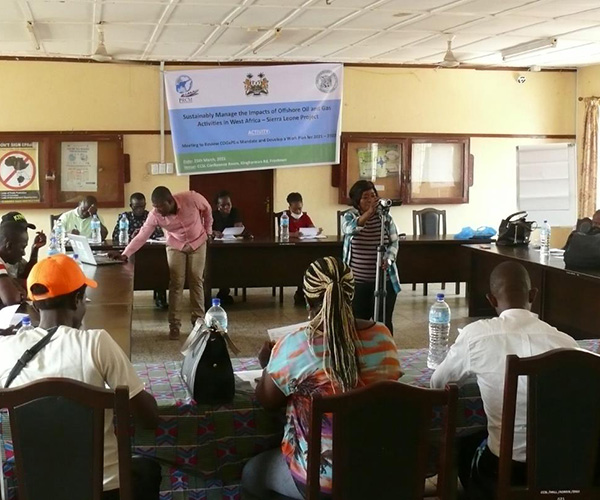
COGaPE-SL Gears up to Support Coastal Communities
In collaboration with the Environment Protection Agency in Sierra Leone (EPA-SL), the Conservation Society of Sierra Leone (CSSL) organised a meeting for the membership of
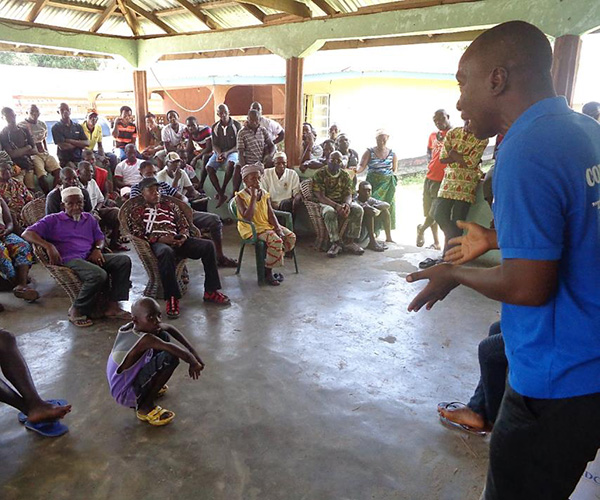
COGaPe continues efforts on reduction of gas and oil polution
As Sierra Leone continues to prepare for possible oil production activities, expectations of high socio-economic boom are rife in all walks of life, particularly across
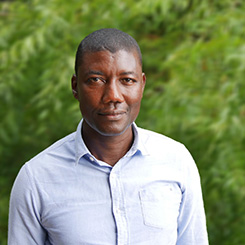
Abdul Kaprr Dumbuya
Communications Officer
More information and press contact
For more information on the Oil & Gas Platform or if you want to engage yourself in this project please contact our Project Coordinator and Communications Officer
Abdul K. Dumbuya: abdul.dumbuya@cs-sl.org
